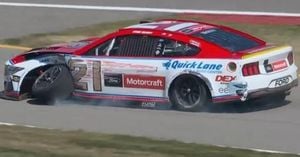Tesla's Cybertruck continues to encounter issues as it recalls thousands of its electric pickup trucks due to persistent problems, marking the sixth recall this year. The latest recall affects 2,431 Cybertrucks, primarily linked to faults within the drive inverter system. Unlike previous software-related recalls, this latest issue cannot be resolved with just over-the-air updates, requiring physical repairs to the vehicle. With many owners now facing fears of sudden power loss, Tesla's reputation for reliability hangs precariously as it navigates through these setbacks.
Launched amid fanfare and high expectations, the Cybertruck was marketed as the rugged, futuristic truck of the future, boasting capabilities to tackle rough terrains and adverse weather conditions. The recall is not the first time issues have raised eyebrows; some customers reported performance problems even under ordinary circumstances, raising concerns about the durability of the vehicle. Talk about bad luck—Tesla's Cybertruck seems to be drawing continuous scrutiny since its introduction to the market in November 2023.
According to the National Highway Traffic Safety Administration (NHTSA), the underlying problem involves the metal-oxide semiconductor field-effect transistors (MOSFETs) within the drive inverter. Should these components fail, drivers risk sudden traction loss, which could pose significant dangers on the road. The NHTSA emphasizes the need for caution, stating, "If the inverter stops producing torque, the driver loses the ability to apply torque to the vehicle… resulting in a loss of propulsion, which may increase the risk of collision."
The concerns arose from customer complaints received as early as July, and Tesla began its investigation soon after. By October, DocuSign identified heightened rates of inverter failures related to the MOSFETs, which prompted the recall announcement after analyzing warranty claims. Thankfully, no reported injuries or serious accidents have occurred due to these inverter failures, but the road to recovery seems long, considering the volume of faulty vehicles.
These recalls aren't just about the latest inverter problems, either; the Cybertruck has gone through a series of recalls since the beginning of 2024. Earlier this year, issues included everything from problematic reverse camera displays lagging to accelerator pedals getting stuck. Tesla bypassed potential customer dissatisfaction by offering quick fixes; many repairs were estimated to take around 15 to 30 minutes. For example, the April recall due to accelerator pedal issues reportedly had only minimal impact, affecting just shy of 4,000 vehicles. Then there was another recall for wiper motor malfunctions affecting about 12,000 Cybertrucks.
Fast forward to November, and Tesla's latest recall emphasizes the need for physical intervention to correct the inverter issue, which takes about three hours to repair. Tesla seemed to approach this recall with urgency, bordering on proactive customer service. The outreach included informing owners of their recent production dates, reassuring them about the upcoming repairs.
On the sales front, the Cybertruck's era of growing pains has attached itself to several uncertainties, especially as estimates suggest the truck's sales lag behind expectations. Early figures indicate Tesla's 2024 attempts to deliver 150,000 units may fall far short of the mark. Speculations suggest the recalls might allude to greater delivery numbers than Tesla is able to acknowledge outright. With the combined recalls totaling over 57,000 for this year alone, the Cybertruck's situation certainly paints a picture of turbulent beginnings.
It’s worth mentioning how recalls affect consumer perception, especially when electric vehicles are still wrestling with gaining mainstream acceptance. Tesla, long regarded as the leader of the pack, faces scrutiny not only from automotive enthusiasts but also from fans who expected to see Tesla’s innovative edge free of safety interrupts. Indeed, even non-Cybertruck models have faced numerous recalls, including actions potentially impacting millions of vehicles this year alone.
Further complicate things, the Cybertruck has also raised eyebrows due to its unique design features and performance claims. The idea of futuristic design and functionality—while alluring—doesn't seem to hold ground when real-world reliability is at stake. "So, what exactly is going on behind the scenes?" is the question on many minds as this saga continues. Are these recalls indicative of larger systemic failures within Tesla's new model design and production processes?
Looking at the immediate future, the company appears to be doubling down on performance and reliability post-recall, possibly attempting to salvage its reputation by improving the quality of future production cycles. Yet negative narratives persist as stories about cavalier designs and consumer experiences circulate the internet and automotive circles. Questions loom: How many more recalls can Tesla manage before consumer fatigue sets in? Will this urge Tesla to reassess its quality assurance protocols before the next release?
Despite the hurdles, Tesla’s efforts to rectify the situation appear sincere. For the anxious owners of affected Cybertrucks, support channels have opened, with Tesla aiming for clarity and reassurance throughout this troubled time. Meanwhile, consumers and experts alike remain vigilant, hoping for resolution and infrastructure improvement as developments evolve.
The Tesla Cybertruck adventure continues, not merely as tales of electric dreams, but as powerful reminders of the challenges faced when leading the charge toward innovative horizons. The question remains—can the Tesla Cybertruck overcome these growing pains to stand tall among its competition? Only time will tell as the company presses onward amid its stormy sea of recalls.



